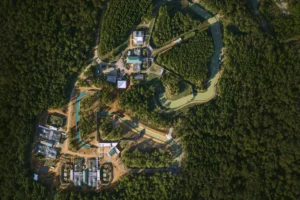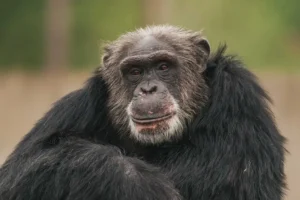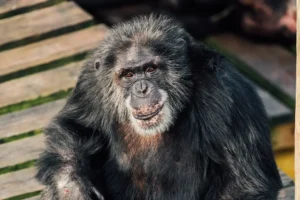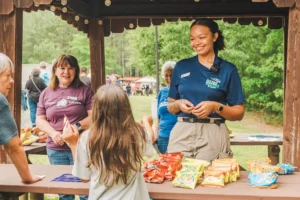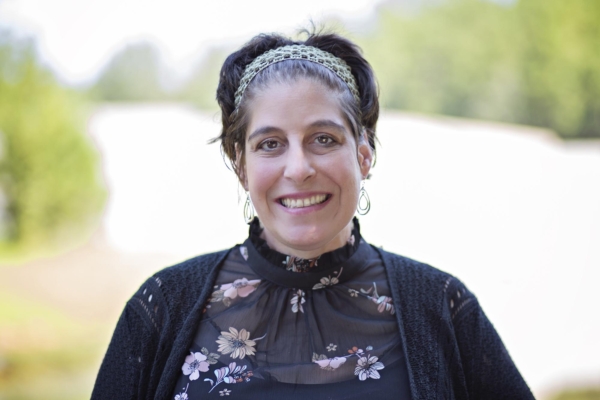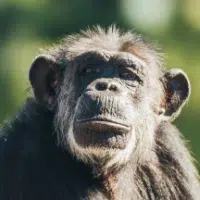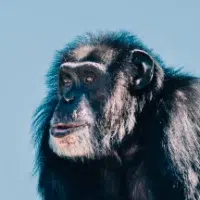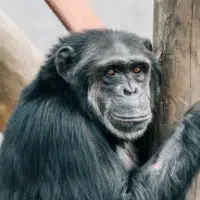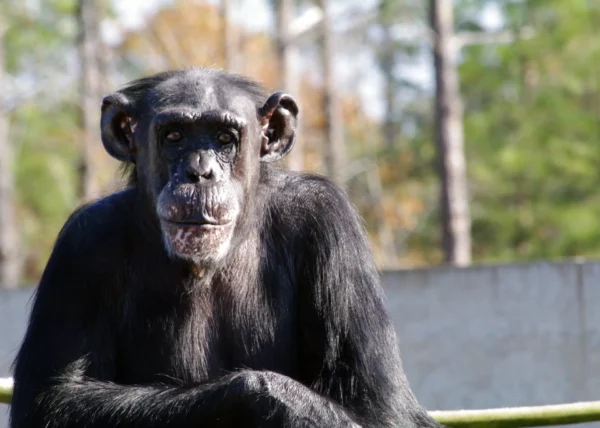

Recently, there have been a number of articles and blog posts focusing on the retirement of federally owned chimpanzees to Chimp Haven. This story really began many years ago when the National Institutes of Health (NIH) determined that there was no longer a need for chimpanzees to be used in any invasive research and that federally owned chimpanzees should be retired to the National Chimpanzee Sanctuary, Chimp Haven (as dictated by the CHIMP Act). The movement of chimpanzees from biomedical research facilities to sanctuary has resulted in concerns and resistance from some in the laboratory community and recently those concerns have been publically voiced in increasingly direct ways.
The first, an article in the journal “Lab Animal” by Dr. Cindy Buckmaster, implored the National Institutes of Health Director, Dr. Francis Collins to “save our chimps.” Dr. Buckmaster’s advocacy rests on the contention that several chimpanzees “suffered and died” because of their transfer to Chimp Haven.
It’s an unfortunate characterization of our organization, which is based less on facts and more on rhetoric and mischaracterizations. We at Chimp Haven have become used to resistance from the laboratory community since the overwhelmingly supported decision to end invasive research with this species and retire all federally owned chimpanzees. We understand that this is a radical change for the lab community that has conducted studies with these animals for decades. But we cannot allow this community to disparage the quality of care we provide to these chimpanzees or to question our organization’s dedication to our mission, without speaking out and standing up to these erroneous charges.
Dr. Buckmaster paints a picture that contends that “healthy and happy” chimpanzees were ripped from their homes and forced to move to an underqualified facility. What Dr. Buckmaster fails to recognize (or report) is that the selection of the individuals to be transferred was not made by Chimp Haven, or even The National Institutes of Health, but by the laboratory itself. In fact, Chimp Haven has never had a say in selecting any individuals for retirement despite the fact that we have advocated for such a role to ensure that these retirement transfers were best planned and operated. So one might reasonably question why several of the transferred chimpanzees were placed on “quality of life” watch prior to transfer. Or why most of the transferred chimpanzees were well beyond the median life expectancy for the species. One might also wonder how Dr. Buckmaster is able to so clearly judge the quality of Chimp Haven, having never seen our facilities.
In the same article, Dr. Christian Abee, veterinarian and director of one lab facility housing chimpanzees was quoted as saying “…we took them from their family groups”. Chimp Haven would never recommend separating established social groups and the fact is that the labs themselves made such decisions when they selected which chimpanzees to send. The deaths of any chimpanzee retired to Chimp Haven is devastating to all who cared for them… those at Chimp Haven and those at their former laboratory home. However, despite the claims of some of these labs, it has been verified that none of these deaths were due in any part to lack of proficiency on the part of Chimp Haven’s expert veterinary and behavioral staff. It’s simply not true and to suggest otherwise conveys a new level of desperation on the part of some in the lab community to keep the chimpanzee population status quo and in their control. Dr. Abee has also never visited Chimp Haven although he has been invited several times.
The reality is that Chimp Haven has a veterinary and behavioral team comprised of individuals who are very experienced in their respective fields. Our team works with the chimpanzees to ensure hundreds of smooth introductions and have a more than 95% success rate that extends back to 2005, the first year chimpanzees arrived. Chimp Haven’s board of directors is also made up of experienced primatologists, veterinarians and members from both laboratory and animal protection organizations, providing greater assurance that we operate under the highest standards. We have met and exceeded the standards of both laboratory and sanctuary accrediting agencies and have an exemplary inspection report record that extends back to our inception.
A subsequent article coming from the research-advocacy blog, “Speaking of Research” focused on Chimp Haven’s newly formed collaboration with Lincoln Park Zoo’s Fisher Center for the Study and Conservation of Apes. The Fisher Center is well-known in the primatology community for their advocacy and practice of completely non-invasive research with apes with the goal of better understanding them and enriching their lives. The anonymous blog author questioned the partnership and wondered why a sanctuary would want to study questions such as the effect of human visitors during our six Chimpanzee Discovery Days, which are open to the public. Yet the answer is surprisingly clear to us. Given that Chimp Haven’s top priority is chimpanzee welfare, we want to take every avenue to ensure that our public programs are not in any way negatively affecting the chimps. Using science to clearly evaluate factors that may affect chimpanzee lives is what we have done since our inception and we have no intention of scaling back research that will ultimately benefit chimpanzee lives.
Any non-invasive research that takes place at Chimp Haven undergoes rigorous review by our Sanctuary Chimpanzee Care Committee. Projects involving federally owned chimpanzees are also reviewed by NIH. It goes without saying that Chimp Haven does not participate in any research that would negatively affect the chimpanzees themselves but more and more, we are finding innovative means to allow chimpanzees to participate in dynamic and enriching tasks that benefit our understanding of the species as well as the chimpanzees themselves. Our collaboration with the Fisher Center will allow us to find ever increasing ways to do just that.
We don’t expect this to be the last volley of accusations from a vocal segment of lab-based individuals, but it is disappointing that the relationship between the lab and sanctuary communities has dissolved to the point where they feel the need to attack our operations. Nonetheless, we are resolute to continue our one and only mission: to provide the best possible lives for chimpanzees retired from research laboratories, regardless of their infectious status, research history or medical state. While we feel the best outcomes involve a cooperative paradigm in which NIH, the labs and the sanctuary work together to decide how retirement takes place, we will continue to strive for the best care for any chimpanzee sent to the sanctuary to live out their lives. Right now we have room for approximately 75 additional chimpanzees and look forward to welcoming more of these amazing individuals to the sanctuary soon…and to continuing in our role as leaders in the world of chimpanzee care.
Cathy Willis Spraetz
President and Chief Executive Officer
Chimp Haven

